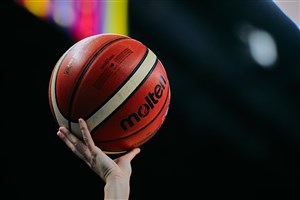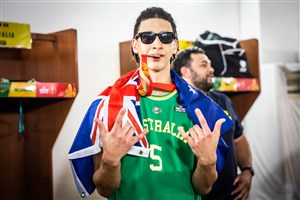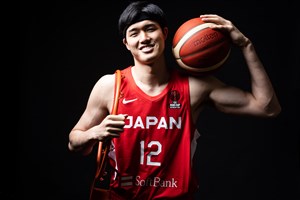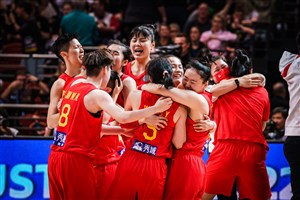
China: FIBA Asia Cup dominance from 1970s to 2000s
BEIJING (China) - The 1960s Celtics. The Bulls of the 90s. The 2000s for the Lakers. It's not very common in basketball, but some teams just figure things out and end up dominating the game for a long time.
Securing three consecutive titles (a three-peat, as commonly referred to) is already considered an extremely difficult task to accomplish. To win titles consistently over a decade is recognized as legendary.
But in the FIBA Asia Cup, China's reign of dominance stretched across three decades - a span where they won the championship each year all except two times.

Out of the gates
It all started in 1975 when China marked their FIBA Asia Cup debut in Bangkok, Thailand. Led by legendary head coach Qian Chenghai, China won their first FIBA Asia Cup game ever against Pakistan, 94-64. They did not lose another game in the competition until 1985.
There were some close calls like the title-clinching 70-68 win over 1979 hosts, Japan, which went down to the wire in a hostile environment. Regardless, China's “first impression” on the FIBA Asia Cup was a 42-game winning streak in a decade where they demolished their opponents by an average of 39.2 points per game on their way to a five-peat.
Quick rebound
FIBA Asia Cup 1985, ABC Championship back then, in Kuala Lumpur, Malaysia started as usual for China when they beat Indonesia 138-31.
The 107-point margin victory was the biggest ever in the history of the competition.
However, the situation took a turn in the later stages when they lost to long time rivals Korea and the Philippines in consecutive games, thus breaking a streak that will unlikely be surpassed or even matched ever again in the new future.
China didn't take long to rise back to dominance.
In the 1987 edition in Thailand - where the first of China's previous five-peat had begun. China went off a shaky start, narrowly defeating Iraq and the Philippines

Nonetheless, they made it to the Final, where they faced Korea, who had beaten them in the previous edition. The matchup between these two successful East Asians teams was as intense as promised, highlighted by a three-pointer from Gong Luming to tie the score with less than a minute to go, which sent the game to overtime.
China went on to get their revenge by shutting their opponents down in overtime, reclaiming their Asian throne once again. It was also a fitting end to the coaching career of Qian Chenghai, who retired shortly after winning the championship.
The Haunting of Wang Fei
China's first five-peat was halted dead in its tracks in part because of Korea back in 1985. Now that they were back in their winning ways, they weren't looking to stop soon. More than that, they seemed focused on torturing Korea in the process.
From the start of the FIBA Asia Cup 1987, China went off on another lengthy win streak of 24 games. Though the streak was stopped in 1991 in a 93-92 loss to Korea, China were again able to avenge that loss by beating their arch-rivals 104-88 in the Final.
China always seemed to have the upper hand during this stretch over Korea, especially with Wang Fei taking the matter into his own hands when the two teams faced each other in 1989. Wang scored 31 points in the Final, which resulted in a 30-point win, the largest deficit in a FIBA Asia Cup Final game ever.
1995 resulted in yet another dominating run to the title, powered by the fantastic foursome of Wang Zhizhi, Li Nan, Liu Yudong, and Mengke Bateer. This completed yet another five-peat for China with four of the titles in this period coming against Korea.
China's record throughout these five consecutive titles was an impressive 40-2 with an average winning margin of 30.8 points per game.

Years of Yao
The FIBA Asia Cup in 1997, which was held in Riyadh, Saudi Arabia, was a transition year for China. Gong Luming resigned from his post as the head coach, and despite the talent that was on hand, China lost to Korea in the Semi-Finals.
However, a comeback was already in the making.
Yao Ming was already making noise as a 17-year-old in the China Basketball Association with the Shanghai Sharks. He was the future of China basketball.
They didn't even have to wait that long to get back to their title-winning ways. China faced Korea again in the Final in 1999, where Hu Weidong dominated to complete yet another undefeated run.
When Yao got into the mix for his first FIBA Asia Cup appearance in 2001, it was over.
China built on their undefeated 1999 run for another three consecutive championships centered around Yao, who won MVP each year as well. There was nothing that could stop Yao, who scored 18.7 points per game playing in 22 contests.
This entire four-title run was the last of China's lengthy dominant stretches in the FIBA Asia Cup. They went 31 games without a loss from 1999 to 2005, crushing their foes by an average of 36.3 points per game.
China are still consistent contenders in the Asia Cup, reaching the final three times in the recent six editions up to date. We may never see any team replicate the dominance of China over that stretch in the near future, but that high standard set by those earlier teams have set the bar for China to continue striving to be among the best whenever they play.
| Year | Wins | Losses | Average Points for | Average Points Against | Average Point Difference |
| 1975 | 9 | 0 | 101.0 | 70.6 | 30.4 |
| 1977 | 9 | 0 | 104.6 | 58.0 | 46.6 |
| 1979 | 7 | 0 | 103.7 | 71.9 | 31.9 |
| 1981 | 7 | 0 | 103.7 | 62.3 | 41.4 |
| 1983 | 7 | 0 | 102.9 | 65.9 | 37.0 |
| 1985 | 3 | 2 | 96.2 | 63.4 | 32.8 |
| 1987 | 8 | 0 | 94.4 | 74.5 | 19.9 |
| 1989 | 8 | 0 | 100.3 | 64.7 | 35.6 |
| 1991 | 9 | 1 | 105.7 | 69.1 | 36.6 |
| 1993 | 6 | 1 | 93.0 | 60.4 | 32.6 |
| 1995 | 9 | 0 | 82.3 | 53.6 | 28.8 |
| 1997 | 7 | 1 | 88.6 | 66.3 | 22.4 |
| 1999 | 7 | 0 | 88.1 | 53.6 | 34.6 |
| 2001 | 8 | 0 | 101.4 | 60.0 | 41.4 |
| 2003 | 8 | 0 | 103.0 | 66.4 | 36.6 |
| 2005 | 8 | 0 | 84.5 | 52.1 | 32.4 |
| Total | 120 | 5 | 97.1 | 63.3 | 33.8 |
FIBA
















